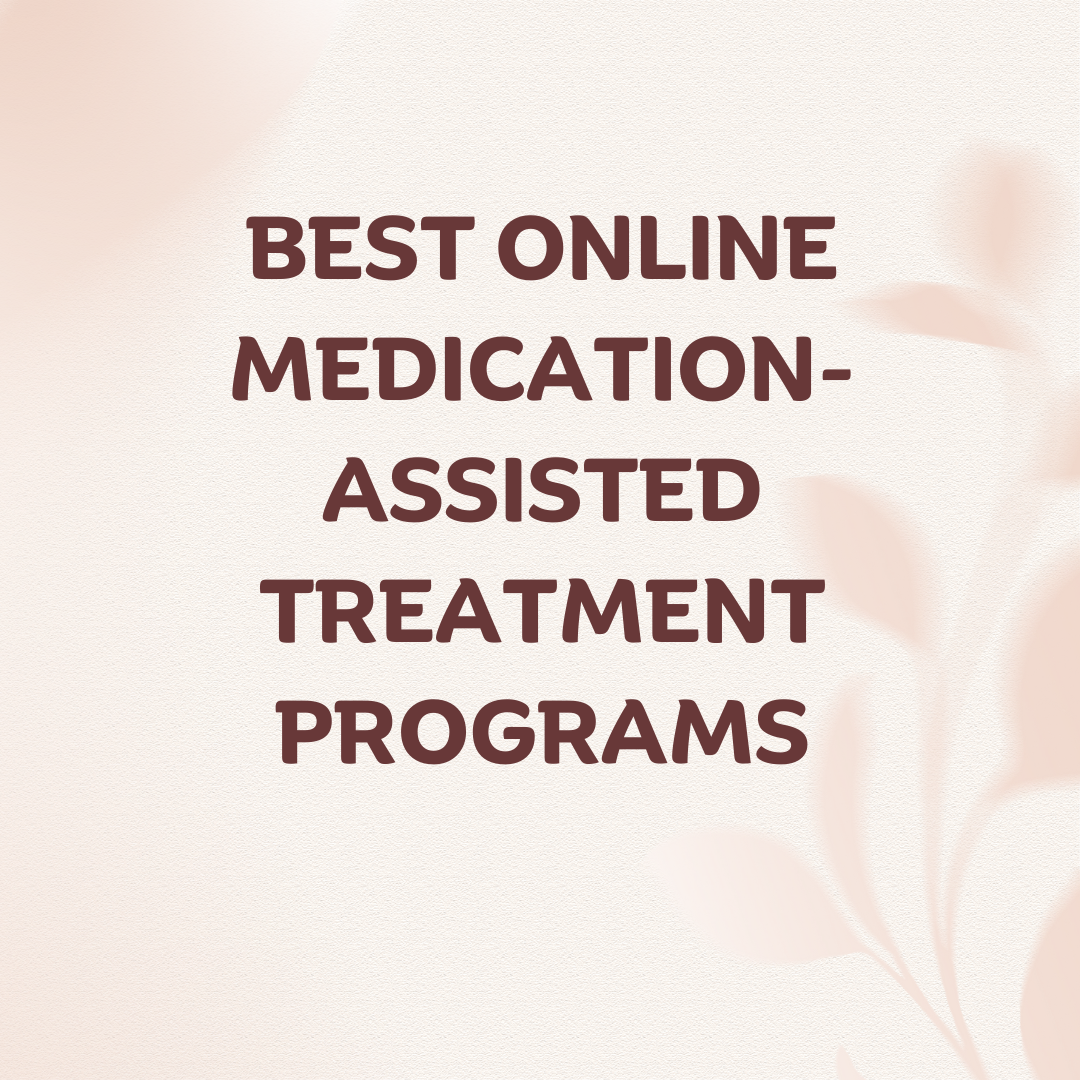
Due to its potency and addictive qualities, abusing fentanyl can result in the development of a fentanyl addiction. Symptoms of this condition affect a person both physically and mentally, and may include increased depression, mood swings, or risk of lethal overdose. However, with early intervention and treatment, a person can overcome their addiction.
Bicycle Health: Telehealth Treatment For Opioid Use Disorder Medically Assisted Treatment For Addiction (MAT) Same Day Prescriptions Often Available 100% Online Covered By Most Major Insurance
What Is a Fentanyl Addiction?
Fentanyl addiction is considered a substance use disorder (SUD) if at least two symptoms emerge within the same 12-month period.4 The continuum from mild to moderate to severe is used to denote the magnitude of the disorder–the more symptoms one experiences, the more severe the disorder is. Fentanyl is a controlled substance that may be prescribed by doctors to treat chronic and severe pain.1
Fentanyl is different from morphine, a natural opioid derived from the seed of the opium poppy plant, as it is at least 50-100 times stronger and potent.1 Fentanyl has become more prevalent in recent years as an illicit drug because it is cheaper and easier to obtain than other opioids. It is even possible for fentanyl to be absorbed through the skin, and an overdose can occur with an amount as little as 0.25 milligrams.1 Due to this, fentanyl carries a high risk of abuse and can be lethal.
Dependence develops when one’s body relies on a particular drug in order to prevent withdrawal symptoms.2 This occurs when an individual uses a substance for an extended amount of time, thus building up a natural tolerance to it. Addictions or substance use disorders (SUD) are considered brain disorders as they affect the brain circuitry that regulates reward, stress and self-control.3 These changes can have a negative lasting impact on a person, even after terminated usage. In severe cases, addiction can lead to death.
Fentanyl Addiction Statistics
According to the Center for Disease Control (CDC), out of 107,375 deaths related to drug overdose, 67% were directly related to fentanyl usage.5 Further, fentanyl related fatalities increased almost 50 percent in the 12 months between April 2020 to 2021. The majority of reported deaths resulted from mixing fentanyl with other illicit drugs such as cocaine, heroin, and methamphetamine.
Unfortunately, many users were unknowingly consuming fentanyl, as other substances may have been laced with the opioid or came into contact with it.6 Due to the strength of fentanyl, a dose of only two milligrams can be lethal.5
Risk Factors & Causes of Fentanyl Addiction
Fentanyl addiction has recently become endemic in the United States because it is cheaper to buy than other narcotics. Additionally, illicit drug labs are known to use fentanyl as a cutting agent or filler for heroin in order to generate higher profit.1 While prescription fentanyl comes in the forms of tablets, transdermal patches, nasal or oral spray, or injectables, illegally sourced fentanyl can often be found in pill or powder form.
There are two primary risk factors for developing an addiction–genetic and behavioral predispositions. For example, previous studies indicated that genetic predisposition was a main contributor to addiction in twin participants. Additionally, a child is eight times more likely to develop an addiction than peers if their parents experience the disorder.
Furthermore, when individuals are not equipped with tools to adequately deal with life stress, they may turn to substance use as a way to numb or minimize intense emotions.7 In time, repeated abuse can increase dependency and tolerance. While dependency is not a full-blown addiction, it does increase the risk of an individual developing an SUD with continuous usage.
Other risk factors for developing a substance use disorder include:
- Early use or teenage addiction
- Lack of supervision
- Peer pressure
- Using highly addictive substances
- Low self-esteem
- Traumatic life experience
- Loss
- Having a mental health disorder
- Cross-addiction
- Addictive personality
Help For Addiction Ria Health: Effective, Evidence-Based Alcohol Treatment 100% Online Quickly change your relationship to alcohol with our at-home program. On average, Ria Health members reduce their BAC levels by 50% in 3 months in the program. Services are covered by many major health plans. Visit Ria Health Workit Health – Online Treatment for Opioids or Alcohol, Including Medication. Modern, personalized recovery that combines medication, a supportive community, and helpful content. Covered by many insurance plans. Currently available in FL, TX, OH, MI, and NJ. Visit Workit Health Best Drug Addiction Rehab Centers – Find the best local detox or drug rehab center covered by your health insurance. Search by location, condition, insurance, and more. Read reviews. Start Your Search
Signs & Symptoms of a Fentanyl Addiction
The exact signs and symptoms of fentanyl misuse vary from person to person. However, if an individual experiences at least two out of the eleven defining symptoms of a fentanyl addiction, they can be diagnosed with the disorder. Even if fentanyl is legally obtained, one can still experience substance dependency and addiction. Fentanyl kills indiscriminately, with no restriction for socioeconomic boundaries.
The eleven criteria for a fentanyl addiction include:
- Using more opioids than intended
- Using opioids for longer than intended
- Spending a great amount of time obtaining, using, or recovering from the effects of fentanyl or other opioids
- Having cravings to use fentanyl or other opioids
- An inability to complete duties at work, school, or home due to opioid use
- Continuing to use fentanyl or other opioids despite negative impacts on relationships
- Giving up things previously enjoyed due to opioid use
- Frequently using fentanyl or other opioids in physically dangerous situations
- Continuing to use fentanyl despite physical or mental problems caused by it
- Developing tolerance to opioids
- Experiencing withdrawal symptoms when stopping the use of fentanyl
Behavioral symptoms of fentanyl abuse include:
- Lying and denial
- Medication seeking, forging prescriptions
- Spending increasing amount of time obtaining and using
- Declined performance in school or at work
- Social isolation
- Slurred speech
- Lapsing on daily responsibilities
Physical symptoms of fentanyl abuse include:
- Digestive issues
- Extreme and/or sudden weight loss
- Psychomotor delays
- Psychomotor agitation
- Constricted pupils
- Drowsiness
- Insomnia
Cognitive and psychological symptoms of fentanyl abuse include:
- Depression
- Paranoid personality disorders
- Mood swings
- Impaired judgment
- Difficulties paying attention
- Impaired memory
- Constant craving
- Suicidal ideation
- Euphoric recall
- Declined interest in regular hobbies
Impacts of Fentanyl Abuse
Regular usage heightens the risk of developing a fentanyl addiction, as tolerance increases the dosage needed for one to feel desired effects. Unfortunately, dependency and addiction often go hand-in-hand with certain impairments and challenges.8
If left untreated, fentanyl addiction may lead to:
- Homelessness
- Financial difficulty or loss of job
- Interpersonal conflicts
- Break up, divorce, or loss of custody
- Psychosis
- Legal issues
- Being classified as gravely disabled
- 5150 or involuntary psychiatric hold
- Conservatorship
- Overdose or death
Co-Occurring Disorders
A person living with a mental illness is more likely to experience a SUD than those without one.9 In some cases, individuals may use fentanyl to self-medicate and manage untreated mental health disorders. However, doing so can worsen symptoms or create new ones. Co-occurring disorders pose additional challenges for the individual who abuses fentanyl. More often than not, the presence of co-occurring disorders can create compounded adverse effects and complicate treatment.
Common co-occurring disorders with a fentanyl addiction include:
- Anxiety disorder
- Bipolar disorder
- Post traumatic stress disorder (PTSD)
- Attention-deficit/hyperactivity disorder (ADHD)
- Personality disorders
- Psychosis
- Depression
- Conduct disorders
Bicycle Health: Telehealth Treatment For Opioid Use Disorder “Best For Online MAT Program For Opioid Use Disorder” (Choosing Therapy)* Bicycle Health offers therapy, support, and medication for addiction treatment (MAT). MAT offers the lowest relapse rates for opioid use disorder, helping people to stop using opioids with minimal physical discomfort. Covered by most major insurance. Visit Bicycle Health.
Symptoms of Fentanyl Withdrawal
Fentanyl withdrawal occurs after one abruptly discontinues using the drug after having grown accustomed to a certain dosage.10 Depending on the extent of substance dependence, the severity of withdrawal symptoms can range. In some cases, withdrawal can be life-threatening and result in heart failure.10 Withdrawal symptoms typically develop within eight to 24 hours following a person’s last dosage.10 Thereafter, symptoms can last as many as 10 days or more, peaking in intensity 36 to 72 hours after discontinuation. Additionally, the method of administration, combining fentanyl with another substance, frequency of usage, and the presence of underlying conditions can increase the risk of withdrawal.
Symptoms of fentanyl withdrawal may include:
- Anxiety
- Muscle aches
- Sweating
- Insomnia
- Dysphoric mood
- Intense craving
- Nausea, vomiting
- Sweating
- Diarrhea
- Fever, chills
- Delirium
It is important to note that there are effective ways to detox and control cravings. Medical professionals can help individuals safely reduce dependency on fentanyl over time through medication-assisted treatments (MAT). Individuals considering discontinuation should consult with a doctor and pursue recommended treatment.
Signs of a Fentanyl Overdose
The amount of fentanyl required to induce overdose varies depending on factors such as one’s weight, tolerance, and history of past use. However, overdose can occur with any amount of fentanyl, even for those who have built up a tolerance or are not addicted. As noted, fentanyl is often cut with other substances, making it impossible to detect by individuals who are unknowingly consuming it.
A person experiencing a fentanyl overdose is in need of immediate medical attention. Call 911 or alert emergency responders if an individual is exhibiting associated symptoms. While waiting for medical assistance, one can administer Naloxone (if available), stay with the individual to monitor breathing, turn the individual on their side to prevent choking, and administer CPR (if trained).10
One should seek immediate medical attention for symptoms of a fentanyl overdose, such as:
- Shallow breathing
- Loss of consciousness
- Extreme sleepiness
- Blueish grey skin or clammy skin
- Limp arms and legs
- Slurred speech or inability to speak
- Inability to think or talk in a normal manner
- Confusion, dizziness
- Disorientation
Treatment for Fentanyl Addiction
Fentanyl addiction is a complex illness, especially for those who experience a co-occurring disorder. As such, treatment should be tailored for each individual. It is important to emphasize that addiction is a chronic disease, requiring a lifetime commitment to treatment in order to maintain progress, sobriety, and avoid relapse.10
Treatment for fentanyl addiction may include:
Rehab or Inpatient Treatment
Rehab and inpatient facilities include 24-hour care and supportive treatment for individuals who have severe symptoms and require a high level of care. A patient will stay and recover for an extended amount of time, which does require them to suspend normal responsibilities for the duration of their treatment.
While most rehabs accept insurance plans, other facilities may offer sliding scale options for those who do not have the insurance or income to pay for treatment.10 The cost of one’s stay depends on the type of care provided, duration of treatment, location, and amenities offered.
Outpatient & Intensive Outpatient Treatment
Outpatient programs provide structure for individuals who would like to work on their recovery at home. Patients will attend treatment in the facility, but are not required to stay after sessions end. This modality is better suited for those who experience mild to moderate symptoms of addiction.
Outpatient typically includes attendance of once-weekly meetings, whereas more intensive programs require multiple weekly sessions. Similar to rehab, many of these facilities can accept insurance plans or offer sliding scale treatment.
Therapeutic Interventions
If one is experiencing an addiction or another co-occuring mental health condition, therapy can help them work toward recovery. However, it is important for one to find the right therapist in order to receive the treatment designed for their particular needs.
Therapy for managing addictive tendencies and co-occurring conditions may include:
- Cognitive behavioral therapy (CBT): CBT helps individuals explore their inner thought processes and underlining negative core beliefs that lead to unhealthy and addictive behaviors.
- Dialectical behavioral therapy (DBT): DBT incorporates mindfulness practices into treatment and encourages patients to both validate and accept uncomfortable feelings. Studies suggest that DBT may be effective for those with a substance use disorder and other disorders, or have not responded to different treatment modalities.11
- Eye movement desensitization and reprocessing (EMDR): EMDR utilizes bilateral stimulation to help individual process traumas, which leads to mental integration and peaceful resolution.
- Group therapy: Group therapy provides a safe space for a person to share their struggles or progress and receive critical feedback from peers. It is also a great modality for those who are still contemplating individual treatment.
- Behavioral modification: This approach helps individuals recognize the impacts of certain behaviors. They will then instill positive and negative reinforcements to ensure that addictive behaviors are modified with constructive skills and coping mechanisms.
- Self-help groups and 12-step programs: These groups connect a person with a group of peers who have or are experiencing similar issues.
Final Thoughts
Fentanyl addiction is a serious illness and can be lethal. When left untreated, this disorder can lead to many long-term and substantial negative impacts on one’s health and life. Individuals or loved ones of one struggling with a fentanyl addiction should seek professional help as soon as possible. Recovery is a long road, but possible with the right direction and guidance.
To help our readers take the next step in their mental health journey, Choosing Therapy has partnered with leaders in mental health and wellness. Choosing Therapy is compensated for marketing by the companies included below. Online Treatment for Opioids or Alcohol, Including Medication. Workit Health – Modern, personalized recovery that combines medication, a supportive community, and helpful content. Covered by many insurance plans. Currently available in FL, TX, OH, MI, and NJ. Visit Workit Health Alcohol Treatment – Cut Back or Quit Entirely Ria Health – Quickly change your relationship to alcohol with our at-home program. On average, members reduce their BAC levels by 50% in 3 months in the program. Services are covered by many major health plans. Visit Ria Health Drug Addiction Rehab Centers Recovery.com – Find the best local detox or drug rehab center covered by your health insurance. Search by location, condition, insurance, and more. Read reviews. Start Your Search Telehealth Treatment For Opioid Use Disorder Bicycle Health – offers therapy, support, and medication for addiction treatment (MAT). MAT offers the lowest relapse rates for opioid use disorder, helping people to stop using opioids with minimal physical discomfort. Covered by most major insurance. Visit Bicycle Health Drinking Moderation Sunnyside – Want to drink less? Sunnyside helps you ease into mindful drinking at your own pace. Think lifestyle change, not a fad diet. Develop new daily routines, so you maintain your new habits for life. Take a 3 Minute QuizAdditional Resources
Best Online Medication-Assisted Treatment Programs Online medication-assisted treatment programs are fairly new to the telehealth industry, but existing companies are expanding quickly with new programs emerging every day. It’s important to explore your options and understand the level of virtual care available so you can choose the best addiction treatment program for you.
Best Mindful Drinking Apps If you’re thinking about joining the sober curious movement and you’d like to cut back on drinking, mindful drinking apps are a great place to start. Practicing mindful drinking can take some time, attention, and patience, but with the help of the right app, you can completely transform your relationship with alcohol.






